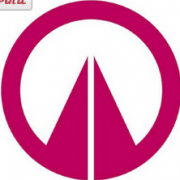Arthur C Clarke Award #5: The Dog Stars by Peter Heller
A global flu pandemic has decimated the human population and, if that’s not bad enough, the worst effects of global warming are taking their toll. The Dog Stars is set in Colorado nine years after the flu pandemic. Hig, a pilot, has made a life for himself at a remote airfield and he’s coping with his emotional trauma – ‘being at the end of all loss’ – thanks to the companionship of his dog Jasper.
This is the fifth novel I’ve read on the Arthur C Clarke Award 2013 shortlist. The winner will be announced on Wednesday 1st May.
Peter Heller is an established non-fiction adventure/travel writer and I hoped for something a bit different from him. And, sure enough, Heller’s main character in The Dog Stars is an inspired choice. Hig is a keen fisherman who observes the changes in the natural world as he makes hunting trips to the mountain forests. He flies reconnaissance missions in his 50s Cessna to check for any marauding gangs and he witnesses the local landscape now virtually devoid of human life. This novel considers how the ecosystem as a whole is struggling in catastrophic times.
Hig has a neighbour at the airfield – gun-toting Bangley – and together they defend their perimeter and fend off all predators. Hig is squeamish about killing on sight but Bangley lives by his own motto: ‘Never ever negotiate. You are negotiating your own death.’
I enjoyed the relationship between these two unlikely partners and Heller writes wittily to create simultaneously sympathetic and critical pictures of both men.
Unlike Bangley, Hig isn’t willing to sit out his life at the airfield so he flies off in search of someone he heard, fleetingly, on the airwaves three years earlier. But I won’t say what or who he finds.
Some readers have likened The Dog Stars to Cormac McCarthy’s The Road. But that’s a nonsense comparison (just to put the record straight). The Road is indeed a post-apocalyptic novel but all vegetation and animal life is eradicated in that particular version of hell-on-earth. In Heller’s novel, the natural world is in transition because of global climate change. Human survivors of the pandemic can still farm. The main similarity is that survivors live in fear of other survivors.
In addition, some readers complain about the lack of punctuation but to my mind that’s appropriate. I mean, at the end of world, do you really think anyone will care about the inappropriate use of the semi-colon?
Hig’s interior monologue often takes the form of incomplete sentences and single-word fragments. It works well.
Reading The Dog Stars did remind me of Chris Beckett’s Dark Eden (also on the shortlist) – their main characters are both in tune with nature and they strive to live ‘in the now’.
Here’s Hig:
It caught me sometimes: that this was okay. Just this. That simple beauty was still bearable barely, and that if I lived moment to moment, garden to stove to the simple act of flying, I could have peace.
The Dog Stars is a good read and I felt that Peter Heller brings much to the table in terms of his broad vocabulary and his ability to engage the reader in the detail of fishing, flying and more. One disturbing aspect of this novel for me is the prediction that in dire circumstances a group of people can only survive if one their number has an all-consuming passion for guns and ballistics. But maybe in the US this is taken for granted.
Do I think The Dog Stars will win the Arthur C Clarke Award this week?
It’s a strong contender and, for my money, this post-apocalyptic novel provides the toughest competition so far for Chris Beckett’s Dark Eden.
Next: the last of the Arthur C Clarke shortlist – 2312 by Kim Stanley Robinson.





Leave a Reply
Want to join the discussion?Feel free to contribute!